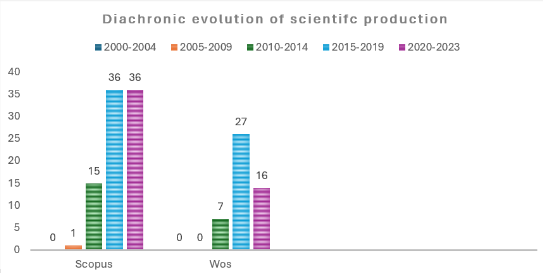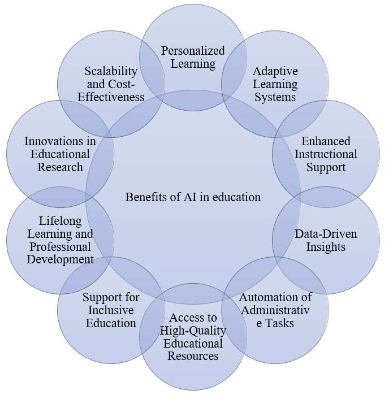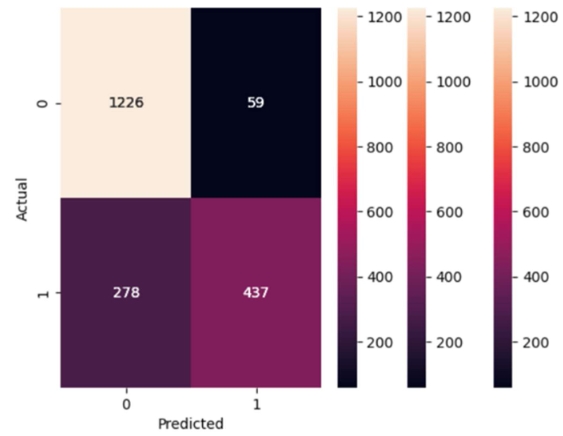Education’s primary motive of overall human development in India: Case based perspective of Dayalbagh Educational Institute
Abstract
The Indian higher education system faces significant challenges in integrating value-based education, sustainability, and consciousness, often prioritizing academic achievements over holistic development. This case-based research explores how Dayalbagh Educational Institute (DEI) effectively addresses these challenges by incorporating sustainability, value, and consciousness into its educational framework. DEI was selected for its distinctive approach, which emphasizes moral and social responsibility, fostering not only academic success but also the ethical development of students. The study draws on document analysis and observations to illustrate how DEI’s educational practices serve as a model for other institutions. The research underscores the urgent need for educational reforms in India that go beyond traditional metrics of success, addressing the gaps in moral education and sustainable practices. By fostering critical thinking, ethical decision-making, and social responsibility, DEI demonstrates how an education system can prepare students for future challenges while promoting a deeper consciousness about their role in society. The findings suggest that integrating value-based education with sustainability and consciousness not only enhances students’ holistic development but also contributes to broader goals of national development. DEI’s model offers practical insights and evidence for other educational institutions to adopt similar strategies, ensuring that future generations are better equipped to address societal challenges with a strong ethical foundation. This research thus provides a comprehensive view of the essential elements needed in modern education to create responsible and conscious global citizens.
References
[1]Bhardwaj A. Importance of education in human life: A holistic approach. Int J Sci Conscious. 2016; 2(2): 23-28.
[2]Minnis F. Socrates for six-year-olds. Booklet accompanying the BBC program of the same title. London: BBC; 1991.
[3]Patwal I. Literacy v/s Education. Available online: https://scicomm.in/education/literacy-v-s-education/ (accessed on 26 June 2024).
[4]Sharma S. Towards sustainable education: Integrating environmental and social responsibility into the curriculum. Int Sci J Res. 2023; 5(5): 1-10.
[5]Bonnett M. Education for sustainability as a frame of mind. Environ Educ Res. 2002; 8(1): 9-20.
[6]Ludvik MJB. The neuroscience of learning and development: Enhancing creativity, compassion, critical thinking, and peace in higher education. Taylor & Francis. 2023.
[7]Kaushik H, Kaushik S. A study on the associations among the factors influencing digital education with reference to Indian higher education. Educ Inf Technol. 2024; 1-25.
[8]Chen L, Chen P, Lin Z. Artificial intelligence in education: A review. IEEE Access. 2020; 8: 75264-75278.
[9]Gupta V. The importance of value-based education & role of teacher. Int J Inf Mov. 2017; 2: 153-156.
[10]Borstorff PC, Lowe SK. Student perceptions and opinions toward e-learning in the college environment. Academic Education Leadership Journal. 2007; 11(2).
[11]World Commission on Environment and Development. Our common future. Oxford University Press; 1987. Available from: https://sustainabledevelopment.un.org/content/documents/5987our-common-future.pdf
[12]Hurst B, Wallace RR, Nixon SB. The impact of social interaction on student learning. Read Horizons. 2013.
[13]Butnaru GI, Niță V, Anichiti A, et al. The effectiveness of online education during COVID-19 pandemic—A comparative analysis between the perceptions of academic students and high school students from Romania. Sustainability. 2021; 13(9): 5311.
[14]Kulal A, Nayak A. A study on perception of teachers and students toward online classes in Dakshina Kannada and Udupi District. Asian Assoc Open Univ J. 2020.
[15]Annan-Diab F, Molinari C. Interdisciplinarity: Practical approach to advancing education for sustainability and for the Sustainable Development Goals. Int J Manag Educ. 2017; 15(2): 73-83.
[16]Kopnina H. Education for the future? Critical evaluation of education for sustainable development goals. J Environ Educ. 2020; 51(4): 280-91.
[17]Webster’s third new international dictionary. 1966 ed. Vol. 1. Springfield (MA): G & C Merriam Co.; 1966. p. 482.
[18]Sutherland S. The Macmillan Dictionary of Psychology. Macmillan Education UK; 1995. doi: 10.1007/978-1-349-24403-4
[19]Hart T. From information to transformation: Education for the evolution of consciousness. Peter Lang Inc., International Academic; 2001.
[20]Mustakova-Possardt E. Journal of Moral Education. 2004; 33(3): 245-269. doi: 10.1080/0305724042000733046
[21]Kaushik H, Rajwanshi R, Bhadauria A. Modeling the challenges of technology adoption in dairy farming. Journal of Science and Technology Policy Management. Published online June 2, 2023. doi: 10.1108/jstpm-09-2022-0163
[22]Agarwal R, Bhadauria A, Kaushik H, et al. ISM-MICMAC-based study on key enablers in the adoption of solar renewable energy products in India. Technology in Society. 2023; 75: 102375. doi: 10.1016/j.techsoc.2023.102375
[23]Satsangi PS, Horatschek AM, Srivastav A, et al. Consciousness Studies in Sciences and Humanities: Eastern and Western Perspectives. Springer International Publishing; 2024. doi: 10.1007/978-3-031-13920-8
Copyright (c) 2024 Hans Kaushik

This work is licensed under a Creative Commons Attribution 4.0 International License.









